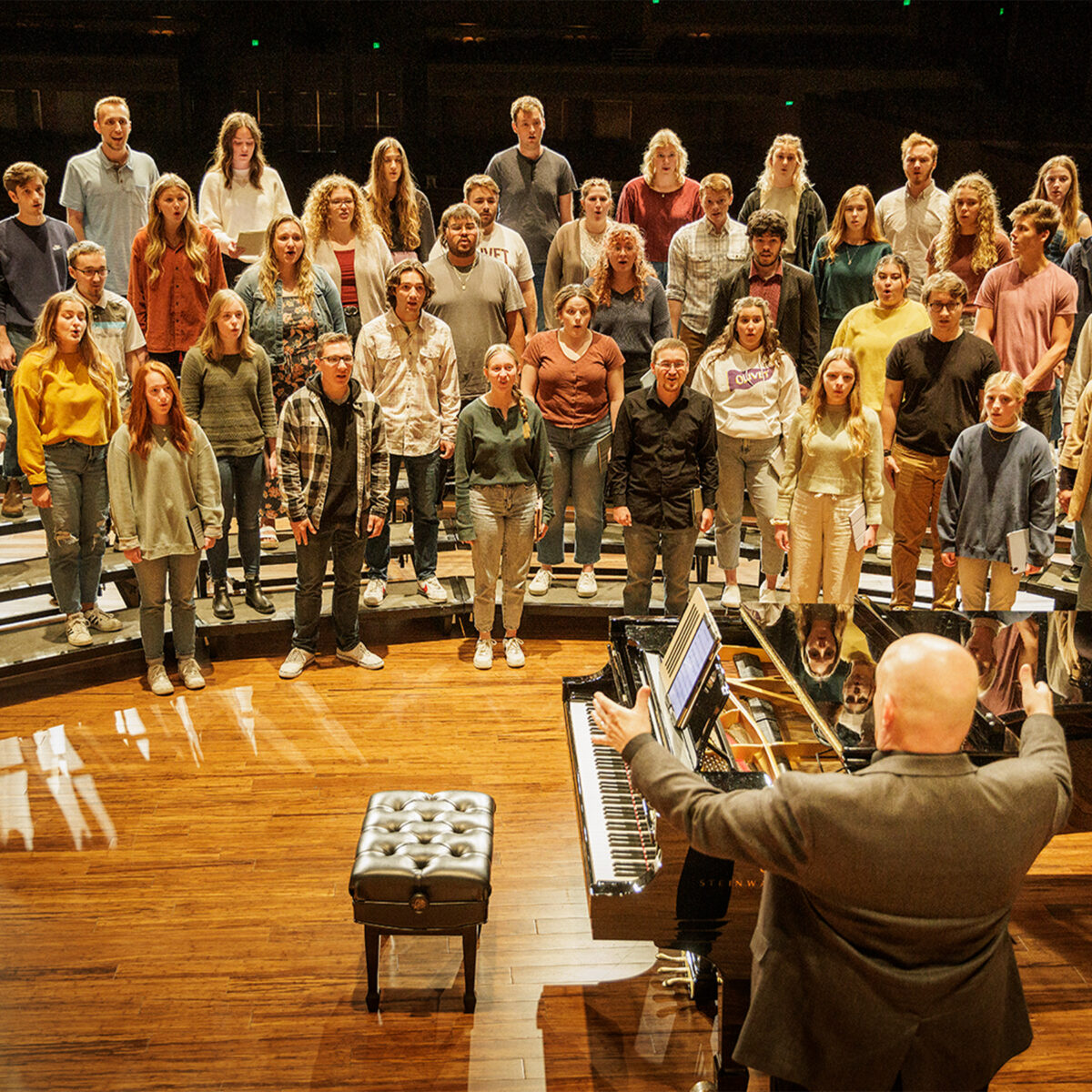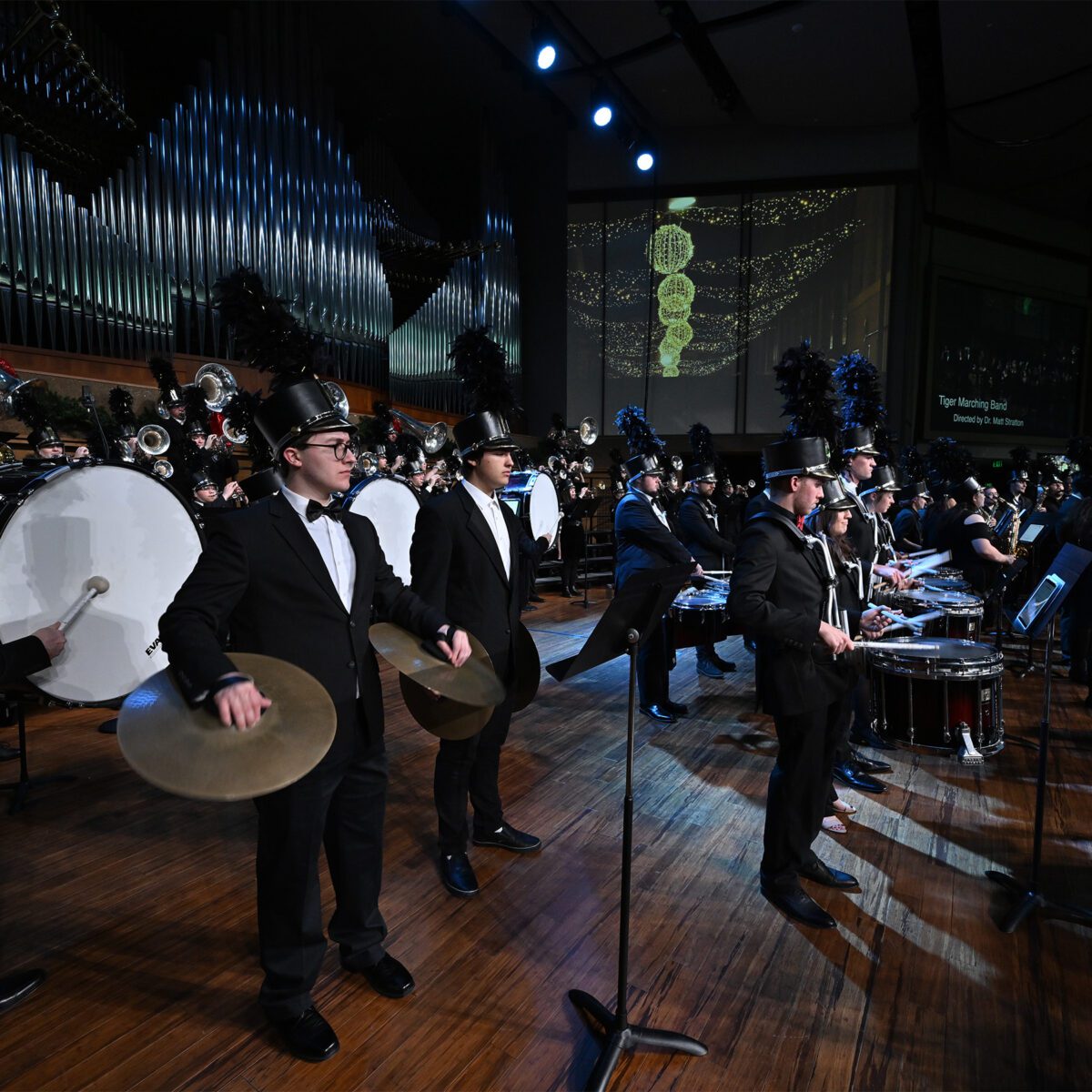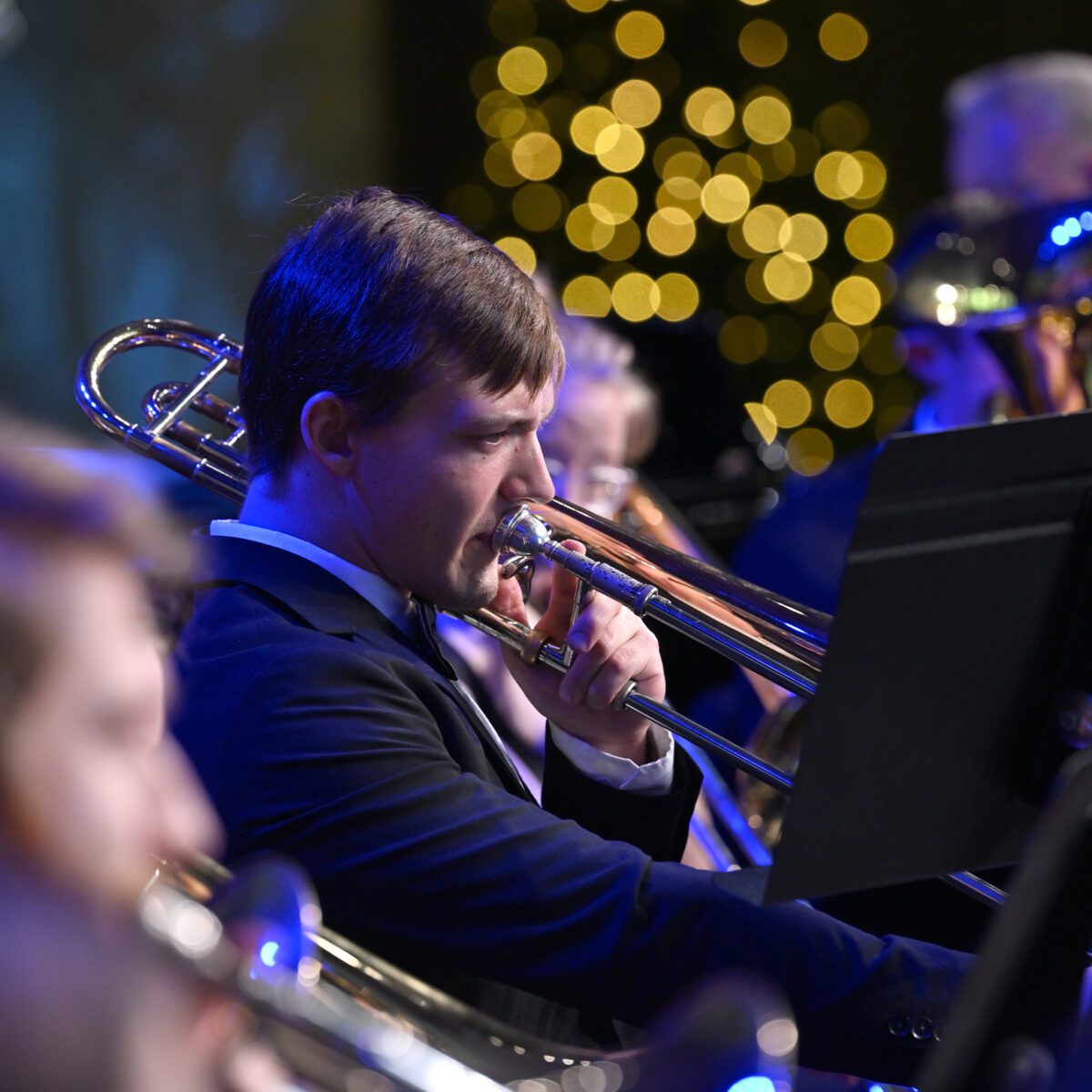Music Education Major
The Bachelor of Music (B.M.) in Music Education is for students who have chosen a career in music education. This degree meets the requirements of the Illinois State Board of Education and the Illinois Professional Educator Licensure, which qualifies you to teach and supervise music in grades K-12. Students complete one of two tracks: General/Instrumental or General/Vocal.

National Association For Music Education
NAFME is an organization to help students do additional “educational service” activities each academic year. NAfME empowers future music educators to invest in the lives of the next generation. Through the professional and social activities, students bond with other music education students, faculty and educators who are already working in their chosen careers.

Music Ensembles
Countless music ensembles make up the performance opportunities offered each year. From opera to orchestral, jazz to jam sessions – there’s a place for everyone in the School of Music.

Concerts and Events
Olivet’s School of Music hosts a variety of concerts and events on campus for campus and community alike.

Where Your Future Begins
We Believe. You Belong Here. Discover why Olivet is a place where faith meets calling. Take the first step today.
